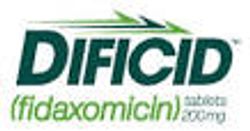Dr. Kaysie Banton interviews
Dr. Brian Zuckerbraun, a senior member of the Surgical Infection Society, regarding the management of Clostridium dificile colitis.
Dr. Zuckerbraun has published the
sentinel article on colonic washout of the colon to reduce the bacterial burden of C.diff in an effort to reduce the risk of needing a colectomy.
Questions to be answered.
Q: what is C.diff?
Clostridium difficile (or C diff) infection is a colon infection that takes place once the normal colon bacteria are out of balance. Once the good bacteria aren’t abundant enough to keep it in check C diff bacteria can overgrow and cause an infection. It takes ingestion of the bacterium to result in an infection and is spread by the fecal-oral route.
Q: Who gets C diff?
A: The most common cause of the bacterial imbalance is the use of antibiotics for other things like an upper respiratory infection or bladder infection. This is one reason that we do not recommend taking antibiotics unless we know a bacterial infection is present. The usual symptoms are abdominal cramping and diarrhea. Anyone who has taken antibiotics either by mouth or intravenously (IV) in the last 3 months is at a small risk of developing C diff.
Q: How do you treat C diff?
A: The first line of treatment is to take an oral antibiotic for a couple of weeks. If symptoms persist or the infection is still detected, a second longer course of oral antibiotics may be recommended. Occasionally, even antibiotic enemas are used.
Q; What if the infection still doesn’t go away?
A: There are a few people who have an ongoing infection with C diff and despite months of treatments, they continue to have symptoms and continue to test positive for the bacteria. For these people, they just can’t seem to break the cycle, but are otherwise doing OK. In this situation, there are a few centers that can replace the colon bacteria with the normal bacteria to ‘reset’ the system. This is called a fecal transplant.
Q: Did you say FECAL transplant?
A: Yes I did. They take feces from a donor who is regularly tested for diseases and who has not been on antibiotics and is healthy. These individuals are then called to ‘make a donation’ when needed. The stool is then made into slurry and injected into the colon during a colonoscopy. The success rate of fecal transplant for chronic C diff infections is very high.
Q: My wife was just diagnosed with C diff. Am I going to get it?
A: It is very important to make sure that everyone washes his or her hands with soap and water when near a person who has C diff. If you have a normal immune system and have not recently been on antibiotics, you are not likely to contract the infection. Washing hands like your mother told you to is the way to go.
Q: I’ve heard that some people die of C diff.
A: Rarely, C difficile infections can become so severe that the patient has a systemic response to the infection and can develop sepsis or septic shock. This is called fulminant or severe C diff. When patients are sick enough to go into shock the risk of dying goes up a lot. In these situations, the treatment options will often include a surgical procedure as well as transfer to an ICU with ongoing antibiotics.
Q: What surgeries are done for C diff?
A: There are two types of operations that are recommended: The Zuckerbraun procedure or a colectomy. The first procedure involes ***.
A colectomy is the surgical removal of the colon (cutting out and removing all the infection) and bringing out an end ileostomy (poop bag). These procedures are done to save the patients life.
Q: Where can I learn more?
A: There are several sites out there, but be wary of everything you might read on the Internet. Here are some of my favorites:
www.cdiffsupport.com
www.cdiffdiscuss.org/
www.cdifffoundation.org/
 If you or your physician are having problems paying for the medication, you or your physician can follow this link to a medical assistance program from Cubist which may help with the cost.
If you or your physician are having problems paying for the medication, you or your physician can follow this link to a medical assistance program from Cubist which may help with the cost. 